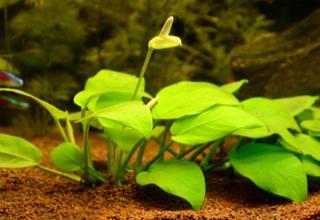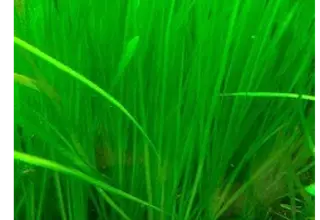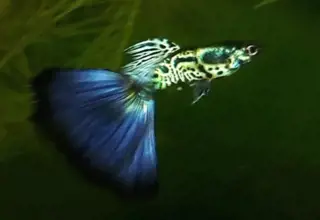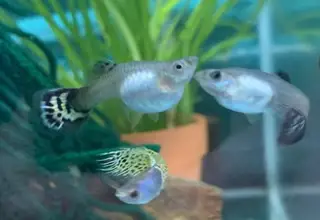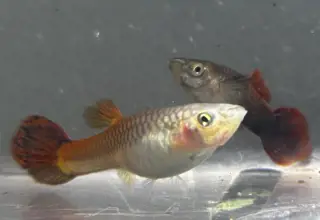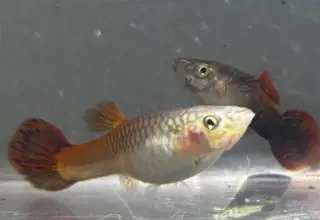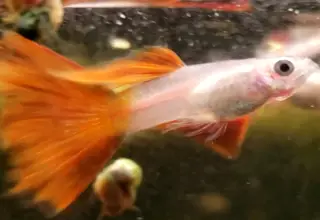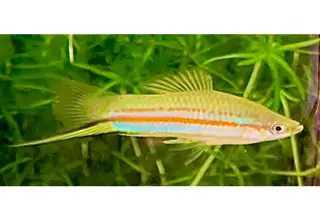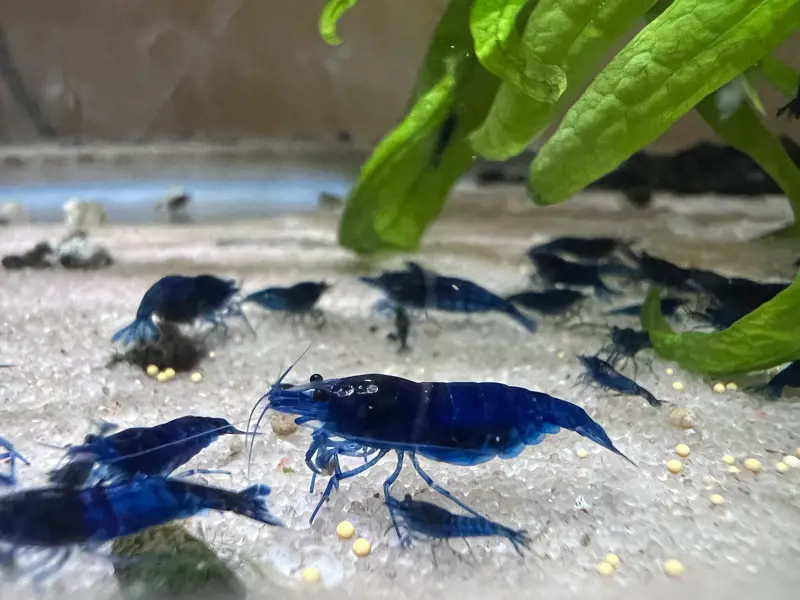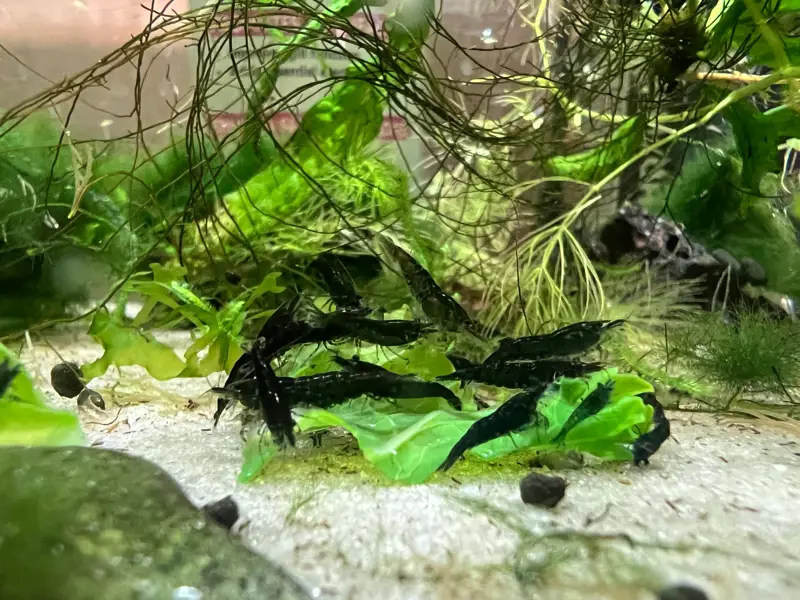Best Aquarium-Safe Play Sand
Posted by on 3/27/2023
We use affiliate links and may receive a small commission on purchases.
Hobbyists may be surprised to hear that play sand, the type of sand used by children to build sand castles, can be used in a freshwater aquarium. Play sand can provide some practical value to a tank, and is typically cheaper to use compared to the substrate offerings from big-name brands such as Fluval and CaribSea.
It's important to know that not every type of play sand is safe for an aquarium. In this post, we'll discuss the pros and cons to aquarium play sand, and we'll also recommend a few aquarium-safe sand options for your freshwater aquarium.
Play Sand in an Aquarium
Play sand can add a natural look to a freshwater aquarium, but not every play sand that goes up for sale is aquarium safe. These sands can contain high levels of calcium, which are known to consistently raise pH levels over time.
If you're deciding whether or not play sand might be the correct substrate to use, let's outline some of the pros and cons.
Pros
- Looks great in an aquarium. The beige coloration of aquarium sand looks great along the bottom of a tank.
- Aquatic plants will develop a strong root system in the small granules of fine-grained sand.
- Very affordable and easy on the wallet.
- Gentle on the fins of bottom-dwelling fish, such as the Green Phantom Pleco or Corydoras species.
Cons
- Requires extensive washing before use. Hobbyists can add the sand to a pillowcase and rinse for a few hours so that their aquarium water doesn't cloud up after introducing play sand.
- Small granules may get sucked into filtration equipment.
- Difficult to gravel-vac, since the small granules may clog up the siphon.
- Anaerobic gases can build up in the sandbed, which you will need to mitigate by occasionally sifting the sand, or by purchasing burrowing invertebrates, such as assassin snails.
Best Aquarium-Safe Play Sands
Now that we've reviewed some of the pros and cons to aquarium-safe play sands, there aren't many aquarium-safe options for sale. Some sands are aragonite-based (the carbonate mineral used in marine aquariums), while others contain additives that wouldn't be suitable for a fish tank.
If you're based in the United States, the following play sands can be found at some of the major hardware stores and will work in an aquarium.
🛒 Shop Freshwater Fish on Light Fish
Quikrete Play Sand
Based in Atlanta Georgia, Quikcrete is one of the largest manufacturers of packaged concrete, but they also specialize in a large variety of commercial and home-improvement products.
It's not surprising that they offer Play Sand , and a 50-lb bag typically sells for only $5.00
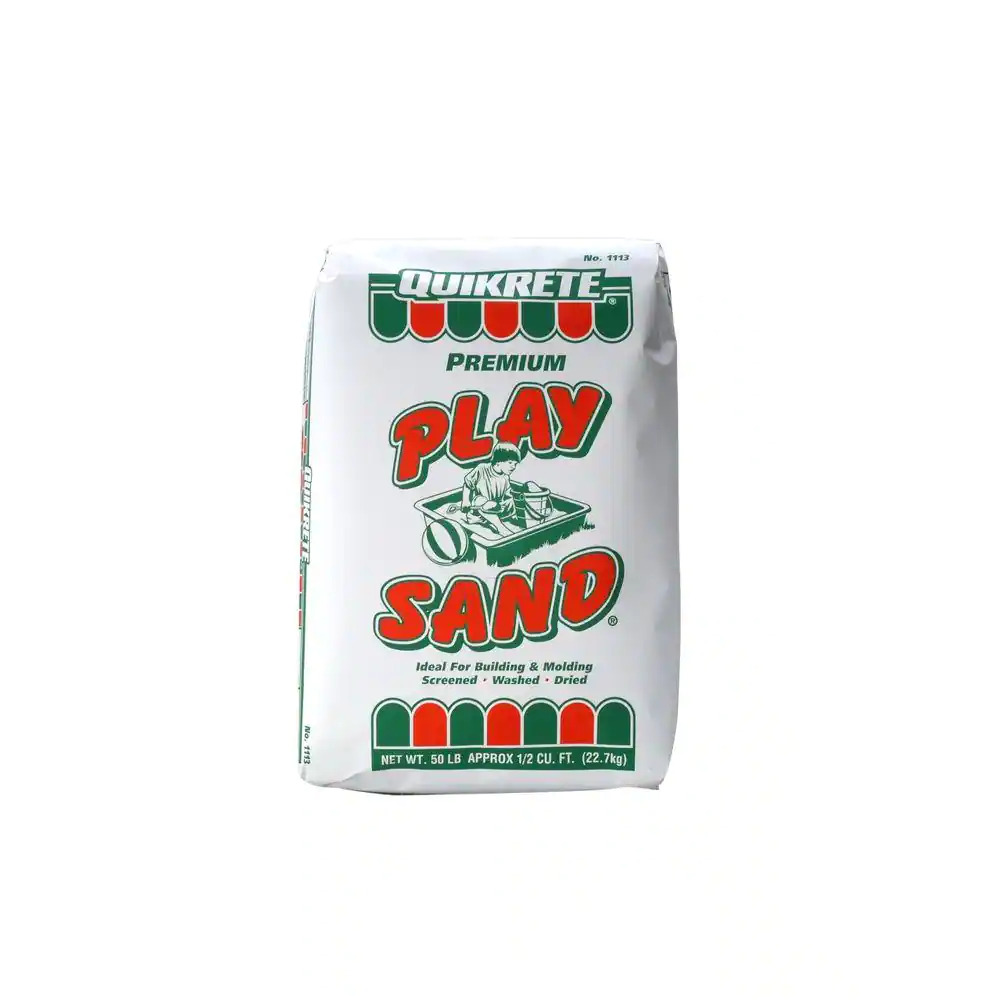
Sakrete Play Sand
Based in Berlin Germany, Sakrete specializes in construction materials, and similar to Quikcrete, also offers play sand.
Although their play sand is sold pre-washed, we still recommend aquarium hobbyists thoroughly rinse this sand to avoid cloudiness in the tank.
Their play sand is very affordable, selling for about $7.00 for a 50-lb bag.
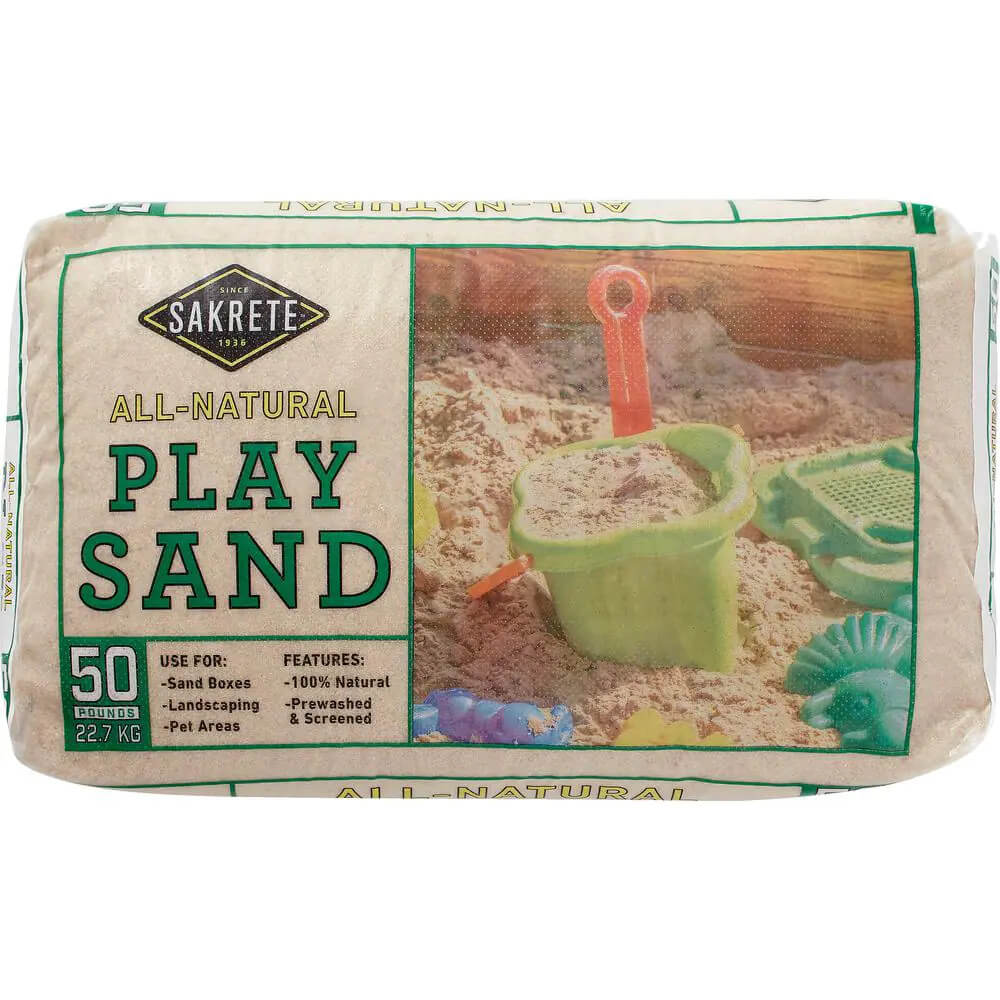
FairmountSantrol's Pool Filter Sand
Okay, so it's not exactly play sand, but we'd be doing you a disservice if we didn't mention FairmountSantrol's pool filter sand . This white-colored sand is a favorite amongst hobbyists for a reason, it's affordable, 100% natural, and looks great in an aquarium.
It's a bit pricier when compared to play sand, but is still much more affordable than the substrates being sold by big-name brands.
We've seen 50-lb bags sold for anywhere between $15-20.
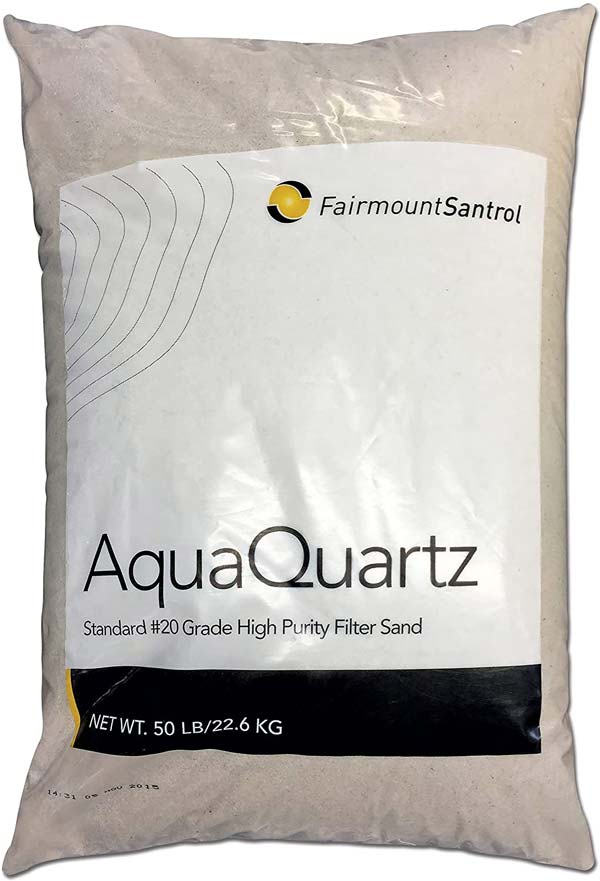
Our Recommendation
Our favorite sand will have to be FairmountSantrol's, Pool Filter Sand. It's even made it on our list as one of the best substrate options for discus. The granule size, appearance, and cost make it one of the best sand options for a freshwater aquarium.
Assuming you have your heart set on using tan-colored play sands, it's worth noting that they can still be a suitable option for your aquarium, provided that you take into account the additional rinsing that may be required before introducing the sand to a freshwater tank.
Conclusion
Now that we've covered some of the pros and cons of using play sand in an aquarium, are you still planning on using it? Perhaps we've changed your mind and you'll decide on Pool Filter Sand instead.
Regardless, having a sand-based substrate is an attractive option for hobbyists building a natural-looking aquarium. Plus, your fish will appreciate the smaller granules on their delicate fins. Let us know what substrate you plan on using in the comments, and be sure to visit our marketplace and community forum where you can buy and sell with other aquarium hobbyists.
February's Giveaways on Light Fish
